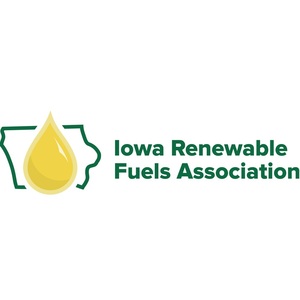Shaw: Iowa biofuels industry “energized, but a little angry”

February 7, 2023
BY Iowa Renewable Fuels Association
During his state of the industry address at the 2023 Iowa Renewable Fuels Summit today, Iowa Renewable Fuels Association Executive Director Monte Shaw said that the Iowa biofuels industry is “energized, but a little bit angry.” The mixed mood derives from the expanding opportunities to grow renewable fuels use coupled with ongoing efforts by some elected officials and interest groups to block those very possibilities.
“The Iowa renewable fuels industry is energized, but a little bit angry,” stated Shaw. “Producers are energized because the world is demanding clean, affordable, renewable energy, and we can deliver. Why a bit angry? To put it simply, we are sick and tired of the unnecessary roadblocks from elected officials and interest groups that want to protect their cherry-picked forms of energy – whether that be supporters of fossil fuels or electric vehicles.”
One source of frustration cited by Shaw was when “the White House broke its promise” to have the Midwest E15 solution finalized in time for the 2023 summer driving season. “Someone in the White House put the brakes on. This will cause irreparable harm to thousands of fuel retailers and millions of consumers. To put it bluntly, we were told to be patient and keep quiet, and everything would be fine for this summer…So, yes, we’re a little bit angry.”
Advertisement
Advertisement
Another challenge are groups who want to completely block Iowa ethanol producers from utilizing carbon capture and sequestration (CCS). Shaw remarked, “I’m not here today to ask you to support carbon policies or clean fuel tax credits. I am here to ask you to honestly consider the real-world impact they have on Iowa’s ethanol plants. If we want to maintain or grow Iowa ethanol production, it will require CCS.”
To view Shaw’s full prepared remarks, click here.
Shaw also highlighted the results of new research quantifying the impact of renewable fuels production on the Iowa economy. The new study, authored by John Urbanchuk of ABF Economics, found the production of ethanol and biodiesel accounts for nearly $7.2 billion in state GDP, supports more than 57,000 jobs throughout the economy, and boosts Iowa household income by over $3.5 billion.
Advertisement
Advertisement
“Renewable fuels have changed the economic trajectory of Iowa,” stated Shaw. “I believe that is an impact worth fighting to maintain and expand. We will roll up our sleeves and get to work energized by the nearly limitless possibilities for renewable fuels and renewable products as we look to the horizon.”
To view the whole study, click here.
Related Stories
Marathon Petroleum Corp. on Aug. 5 released second quarter financial results, reporting improved EBITDA for its renewable diesel segment. The company primarily attributed the improvement to increased utilization and higher margins.
Chevron Corp. on Aug. 1 confirmed the company started production at the Geismar renewable diesel plant in Louisiana during the second quarter after completing work to expand plant capacity from 7,000 to 22,000 barrels per day.
California’s new specified source feedstock attestation requirement: A critical new compliance step for renewable fuel producers
As of July 2025, California’s SCFS requires renewable fuel producers using specified source feedstocks to secure attestation letters reaching back to the point of origin. This marks a significant shift in compliance expectations.
The public comment period on the U.S. EPA’s proposed rule to set 2027 and 2027 RFS RVOs and revise RFS regulations closed Aug. 8. Biofuel groups have largely expressed support for the proposal but also outlined several ways to improve the rulemaking.
The U.S. renewable fuels industry on Aug. 8 celebrated the 20th anniversary of the Renewable Fuel Standard. Federal lawmakers also marked the occasion with resolutions introduced in the House and Senate earlier this month.
Upcoming Events










